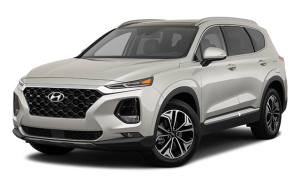Hyundai Car Insurance Rates
Free Insurance Comparison
Compare Quotes From Top Companies and Save
Secured with SHA-256 Encryption
Kristen Gryglik
Licensed Insurance Agent
Kristen is a licensed insurance agent working in the greater Boston area. She has over 20 years of experience counseling individuals and businesses on which insurance policies best fit their needs and budgets. She knows everyone has their own unique needs and circumstances, and she is passionate about counseling others on which policy is right for them. Licensed in Massachusetts, New Hampshire,...
Licensed Insurance Agent
UPDATED: Dec 4, 2023
It’s all about you. We want to help you make the right coverage choices.
Advertiser Disclosure: We strive to help you make confident insurance decisions. Comparison shopping should be easy. We are not affiliated with any one insurance provider and cannot guarantee quotes from any single provider.
Our insurance industry partnerships don’t influence our content. Our opinions are our own. To compare quotes from many different insurance companies please enter your ZIP code on this page to use the free quote tool. The more quotes you compare, the more chances to save.
Editorial Guidelines: We are a free online resource for anyone interested in learning more about insurance. Our goal is to be an objective, third-party resource for everything insurance related. We update our site regularly, and all content is reviewed by insurance experts.
When you’re looking to buy Hyundai auto insurance, it’s best to get quotes from top car insurance companies with strong reputations.
While many may offer lower rates, it’s more important to look for a car insurance policy that includes ample coverage for your driving needs, especially if you’re insuring a new car.
The best insurance companies provide timely claims processing and plenty of coverage options. Discounts that reward items such as good driving and vehicle safety features are standard.
Many factors determine your insurance premium rate. These include your age, gender, driving record, and make and car model of your vehicle.
Insurance providers look at safety ratings, the cost of repairs, the value of your car, and the likelihood of theft when calculating your policy pricing.
Once you understand how insurers consider these elements, you’re better able to determine the best rates and coverages for your vehicle.
How Much Does Does Hyundai Car Insurance Cost?
According to Finder.com, the average cost of car insurance for a Hyundai varies from $70 – $300 per month depending upon the model of your car, your driving record, and where you live.
Companies offering Hyundai insurance are a dime a dozen, and each one seems to provide different auto insurance rates.
While it is probably tempting to purchase your insurance from the cheapest provider, that usually isn’t the best choice.
Low prices can come at the expense of adequate coverage, or sky-high deductibles. Before you pick a provider, make sure you understand how much coverage you’ll receive for the quote it provides. It’s also best to research the company’s customer satisfaction ratings, reviews, and financial strength.
It’s also a good idea to get several car insurance quotes to compare when looking for the best car insurance for your budget.
Below, we’ve provided a breakdown of the factors that insurance companies look at when quoting your rate. You’ll also see some other important considerations that can affect a Hyundai driver.
Hyundai Safety Rating and Damage Threshold
The Insurance Institute for Highway Safety (IIHS) performs safety tests on hundreds of passenger vehicles to determine safety ratings and damage thresholds. They look over every inch of cars, including several points of impact, headlights, car seat anchors, and safety equipment.
These ratings affect the price of your Hyundai insurance. The IIHS rates vehicles in several categories and provides one of four scores: G (Good), A (Acceptable), M (Marginal), or P (Poor). Here are some examples of ratings for Hyundai’s recent models.
2019 Hyundai Santa Fe
The 2019 Santa Fe was named a Top Safety Pick+ as a result of the IIHS’s safety testing. The midsize SUV was rated “G” in all tested categories except for Child Safety Seat Anchors (Ease of Use), which was rated “A.” Additional testing on the Santa Fe’s Front Crash Prevention resulted in a rated of “Superior.”
2019 Hyundai Accent
Another Top Safety Pick, the 2019 Accent performed incredibly well in IIHS safety tests. The four-door sedan received a rating of “G” in all categories.
The only exceptions were Headlights and Small Overlap Front: Passenger Side, which received a rating of “A.” With optional equipment, the 2019 Accent rated “Superior” in additional Front Crash Prevention testing.
These outstanding ratings may help reduce your Hyundai car insurance.
Hyundai Make and Model
Out of all the factors needed to get your car insurance quote, the make and model are the most important. Let’s break all this down. The make of the car is the brand, like Hyundai, Toyota, Honda, and such.
At this point, you’ve narrowed down your make, let’s look at the different Hyundai vehicle models. The Hyundai car manufacturer creates several models, including SUVs, sedans and compacts. Here are the different new vehicle models to choose from:
- SUV
- Hyundai Venue– Urban compact SUV
- Hyundai Kona– Compact SUV
- Hyundai Kona electric– Electric compact SUV
- Hyundai Tucson– Modern compact SUV
- Hyundai Santa Fe and Santa Fe Sport– 5 passenger SUV
- Hyundai Palisade– 8 passenger SUV
- Hyundai NEXO Fuel Cell– Hydrogen Fuel Cell- SUV
- Sedans
- Hyundai Accent-subcompact sedan
- Hyundai Elantra and Hyundai Elantra Coupe– compact sedan
- Hyundai Sonata– midsize sedan
- Hyundai Sonata Hybrid– hybrid sedan
- Hyundai Sonata Plug-in– plug-in hybrid sedan
- Hyundai Azera– luxury sedan
- Compacts
- Hyundai IONIQ Hybrid– electric hybrid hatchback
- Hyundai IONIQ Plug-In– plug-in hybrid hatchback
- Hyundai IONIQ Electric– electric hatchback
- Hyundai Veloster– 3 door hatchback
- Hyundai Veloster N– high-performance hatchback
- Hyundai Elantra GT– 4 door hatchback
Each dealership will have its own prices, however, the larger the car, the more costly the insurance will be. If you choose and add-ons like upgraded trim packages, your MSRP (sticker price) will increase and so will your premiums.
If you can’t live without leather seats and nice wheels, by all means, get what you want. Just keep in mind again, the higher the price, the higher your coverage will cost.
Hyundai Comprehensive and Collision Coverage
The overall value of your Hyundai plays a significant role in the price you pay for insurance.
Collision Coverage protects you from any collisions with another car or object. Collision coverage also doesn’t cover property damage, meaning your insurance will pay for repairs on your car, but not any other individual NOT covered by your insurance’s car damage or property damage. Comprehensive coverage protects you from collisions as well as theft, fire damage, hail, and even theft as well as collision coverage.
Needless to say, the more you the coverage your add-on, the higher your premiums will be. The year and condition of your vehicle and your geographic location determine its value. The following examples are based on cars in new condition located in the 90055 ZIP code.
According to Kelley Blue Book, the 2019 Hyundai Santa Fe 2.4 SE with standard equipment is worth between $24,474 and $25,719.
For a 2019 Hyundai Accent SE, the fair market price is much lower, between $$14,687 and $15,290.
This price variance is reflected in your insurance rates. The more expensive cars equal a higher-priced- policy.
Hyundai Claims Frequency and Potential to Cause Damage
The IIHS collects claims data and publishes information on insurance loss as it relates to specific vehicles.
Each vehicle included in the study receives ratings in several loss categories.
Below are the ratings for both the Hyundai Santa Fe and the Hyundai Accent according to the IIHS’s 2015-2017 Insurance Loss Report.
| Loss Category | Hyundai Santa Fe (4-Door) | Hyundai Accent |
| Collision | Average | Average |
| Comprehensive | Average | Substantially Worse than Average |
| Property Damage | Average | Average |
| Personal Injury | Average | Substantially Worse than Average |
| Medical Payments | Average | Substantially Worse than Average |
| Bodily Injury | Average | Substantially Worse than Average |
While the average ratings for the Hyundai Santa Fe aren’t likely to have much effect on insurance rates, the low ratings for the Hyundai Accent may result in a higher-priced insurance policy for Accent drivers.
Hyundai Insurance Discounts
Hyundai’s that include up-to-date safety features might qualify for insurance discounts with some of the top insurance companies.
Drivers of newer Hyundai models are most likely to see the most significant savings under this category.
Most newer Hyundai models include safety features such as automatic emergency braking, lane departure warning, and blind-spot detection.
Enter your ZIP code below to view companies that have cheap insurance rates.
Secured with SHA-256 Encryption
What Are the Best Companies for Hyundai Car Insurance?
Whether you’re shopping for insurance for your Hyundai or for any other make of vehicle, it’s good to try and get quotes from at least three insurance companies.
Additionally, researching customer reviews and ratings gives you insight into how well the company serves its policyholders and helps you decide which insurance provider is the best fit for you.
You also might want to consider the following:
- Financial strength – This may not be top of mind, but researching a company’s financial standing can help you make sure they have the ability to meet their responsibilities.
- Licensing – Checking whether the company or agent is duly licensed can also help you catch any complaints or legal troubles they may have had.
- Customer service – The importance of how an insurer deals with consumers cannot be overstated, especially during the claims process. Make sure to look for any possible red flags.
- How comfortable you feel with the agent – Though your interaction with your agent may be limited to when he or she sells you the policy, it’s important to feel like you can ask any questions, and are helped through every step of the process.
When you’re ready to commit to a provider and purchase a policy, asking some of the following questions can help you obtain the best rate for your car insurance:
- Do I get a discount for being a better driver?
- If my mileage is low, do I pay less for my policy?
- Do I qualify for a lower rate with my vehicle’s safety features?
- If I pay in full or set up automatic payments, do I pay less?
What to Know About Hyundai
Hyundai Motor Company is a multinational Korean auto manufacturer with headquarters in Seoul, South Korea.
It produces a wide range of vehicles, including SUVs, sedans, and minicars. Hyundai is known for being affordable and reliable.
After reading the above information, we hope you have a better understanding of how insurance companies calculate risk and determine insurance rates.
Use this knowledge to negotiate the best price for your Hyundai insurance policy.



